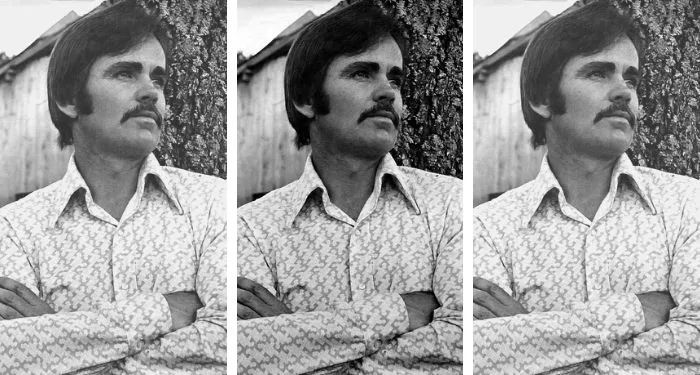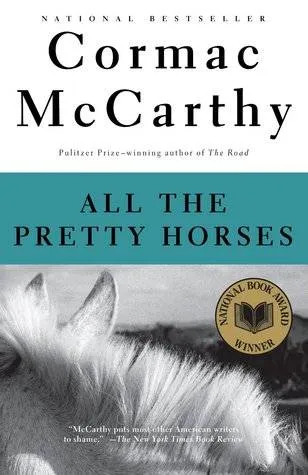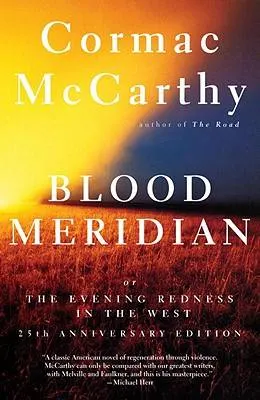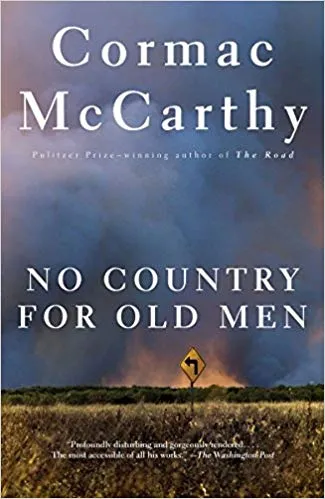
Who Was Cormac McCarthy?
On June 13th of this year, the news broke that author Cormac McCarthy died of natural causes at age 89. The reclusive writer authored books you might recognize, like All the Pretty Horses, The Road, and No Country for Old Men. His mainstream success as a novelist came in the 1990s after years of writing away and publishing his early works. Some of you, I’m sure, know his history. But for those of you who may have encountered the author through classroom reading or a film adaptation of one of his novels, here’s a brief overview of his life and career.
Soon after he was born, his family moved to Tennessee, where he was raised and attended school. He sang in choir and was a cartoonist for his school paper, according to one account. After high school, he attended the University of Tennessee before dropping out two years later and joining the United States Air Force. He served in the Air Force for four years, two of them spent in Alaska. While there, he hosted a radio show and read books to pass the time.
In 1957, he returned to the University of Tennessee, where he began publishing short stories in The Phoenix, the university’s student literary journal, and won the Ingram-Merill Award for creative writing two years in a row. Thus began his literary career.
Literary Career
McCarthy didn’t graduate from college, instead working as a mechanic in Chicago while writing what would become his first novel, The Orchard Keeper, which was published by Random House in 1965.
Receiving a fellowship from the American Academy of Arts and Letters and a Rockefeller Foundation Grant, McCarthy traveled the world before landing in Ibiza, where he finished his second novel, Outer Dark, published in 1968.
Next came a move back to America and, along with it, the Guggenheim Fellowship for Creative Writing in the late 1960s, soon followed by the 1973 publishing of his third novel, Child of God. He then made his first foray into screenplay writing for the film The Gardener’s Son, based on the real story of a murder and trial that occurred in 1876. Then came the semi-autobiographical Suttree published in 1979.
Using the money from a MacArthur Fellowship to get by, McCarthy wrote and published the apocalyptic Western Blood Meridian, said to be a “turning point” in his career. Then, in 1992, his novel All the Pretty Horses was released, selling 190,000 within six months and winning the National Book Award, bringing him into the mainstream literary world.
After his rise in popularity came the rest of The Border Trilogy novels: No Country for Old Men, The Road, The Passenger, and Stella Maris.
McCarthy’s Impact
McCarthy’s unique writing style and take on punctuation made him a standout among his peers. He favored “sparse punctuation,” leaving out quotation marks in his novels and developing a rhythm or “sound” to his prose. To some, he inspired “experimentation” and encouraged writers to “challenge conventional norms.” For others, his exploration of dark themes and lyrical writing “transported readers to experiencing the raw beauty and harsh realities” of the “chaotic world.”
His reach extended beyond the written word — the film adaptation of No Country for Old Men, for instance, won four Academy Awards. His work has inspired numerous studies, and in 1993, the first National McCarthy conference was held in Louisville, Kentucky.
Where to Start Reading Cormac McCarthy
Where should you start reading McCarthy? Well, that depends on what you’re most interested in. By most accounts, All the Pretty Horses is his most widely read and accessible novel for newbies to his style. The western novel follows 16-year-old John Grady Cole, a Texas rancher, who journeys to Mexico after his family’s ranch is sold.
For a bleaker start on McCarthy’s writing, The Road is a great starting point, following a father and son as they walk through a post-apocalyptic America.
For more of an action-packed novel, pick up No Country for Old Men. The story of a drug deal gone awry in the desert border between Texas and Mexico will suck you in as you adjust to McCarthy’s punctuation — or lack thereof.
I hope you learned something about the literary great Cormac McCarthy and are inspired to pick up one of his many works. For more discussion of his works and his rare interview appearances, check out our beginner’s guide to Cormac McCarthy.














